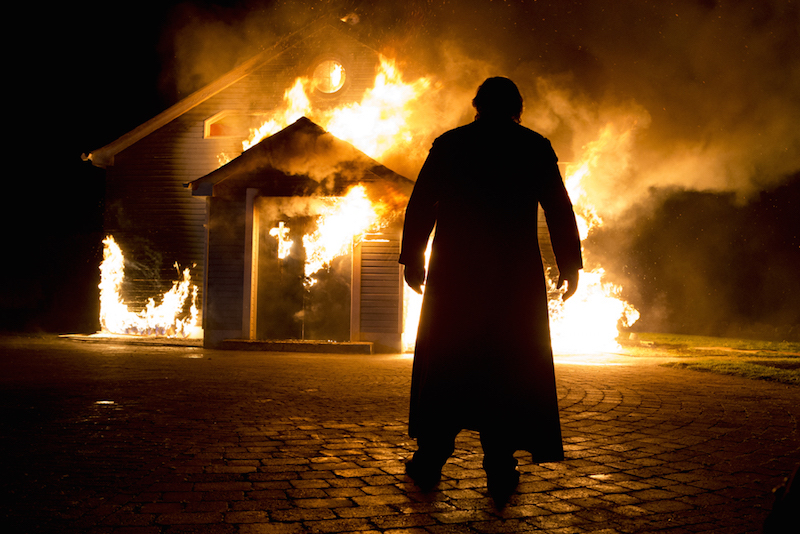Calvary and the Virtue of Self–Sacrifice
Drew Trotter
“Self–sacrifice? But it is precisely the self that cannot and must not be sacrificed.” —Ayn Rand, The Fountainhead
My favorite film from last year was an independent movie, written and directed by John Michael McDonagh entitled Calvary. If you are not yet familiar with it, shame on you because Tom Sturch wrote a wonderful piece on it just a few days ago on this website, linking the eight-day structure of the movie to the “Octave of Christmas”, which many in the ancient church celebrated. They did so because one day, i.e. Christmas day, cannot really contain the significance of what actually happened in the incarnation two thousand years ago. Something that big we should celebrate for eight days!
Anyway, the number eight is just about all that the traditional Octave and Calvary share in common because the film moves about as far from celebration and joy as is possible. Calvary is a slice-of-life drama set in a town in which almost every citizen is despicable. I say almost because—in a counter-cultural twist that is mind-boggling for me—one of the two decent characters in the film is Father James Lavelle, a priest played brilliantly by Brendan Gleeson. (The other, a French woman who is a heart-breakingly endearing character, is from out of town.)
The townspeople are portrayed through superb performances, each actor playing an oddball with serious moral deficiencies. There is a police chief, who has a gay lover and points guns at people for fun; a suicidal daughter with attitude; a wealthy retired investment banker, who cynically pees on a priceless painting he owns; a butcher, who is perfectly happy to let his wife’s adultery continue because he is glad to be rid of her; and on and on and on. If there is one thing all of these characters share in common, it is a personal and social nastiness that makes them sardonically dig at the priest over and over again in every interaction in the film.
All of these characters are in need of forgiveness, and none of them seek it. The police chief mocks the priest with his lifestyle and his belief in power. The daughter, who is his own, loves him but resists his attempts to get her to talk about her suicide attempt and, in a remarkable scene when he is sitting in the confessional and she in the place of the penitent, mocks Christ by calling him suicidal. The cynical investment banker cannot let go of spitting on the church for being so greedy, and derides the priest for being part of such a corrupt institution. The butcher, his wife, and her lover all tell the priest to get lost when he tries to help all three of them, because the love-making has turned violent (she’s been beaten up, but it is never quite clear by which man).
What does the priest do in all these situations? Like Jesus, it seems to me, he simply continues to love and seek to serve the people of the town, regardless. The only one for whom he ever really has harsh, condemnatory words is his fellow priest, again like Jesus with the Pharisees. The movie is a study in the responsibility of all of us to treat those who despise us with love and prayer (Matthew 5:43-46), and Father Lavelle does this consistently. He takes the pain and the suffering each of these broken souls experiences, and he internalizes it, not without some suffering of his own, since he is human after all.
But when his church is burned down, when his dog is slaughtered mercilessly, and when his own life is threatened, he simply remains faithful to his tasks of tending the flock, whether it be in the church, at their places of work, in their homes or in the pub. He pays dearly for his love; though he has been personally self-sacrificial throughout the film, he is willing to die—if it takes that—to help his wounded sheep.
Calvary may not be a perfect film, especially in its theology, but it is at worst, a study of a character so worth emulating that the movie ought to be high on everyone’s list to watch. Too much of the meaning of the film seems to be lodged in a thinly veiled religious humanism, though I could be argued out of that, since the priest is often seen praying before a crucifix, and the chief element in the marketing of the film is an empty cross. I’ll leave you to see it, evaluate the striking image at the very end of the movie, and meditate on what it means to forgive.
